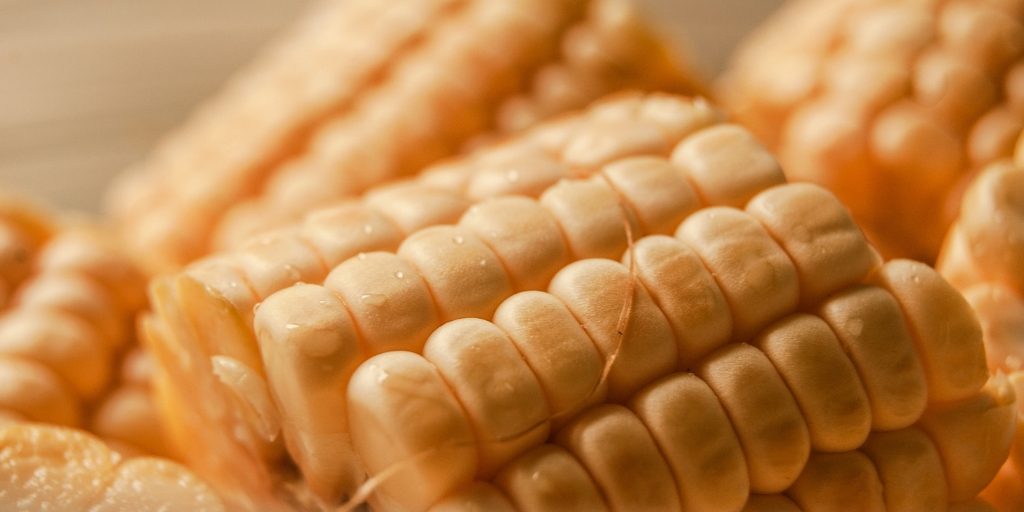
A corn allergy is having an immune response to corn or its products. The main culprit of these symptoms is a protein called zein. Zein is a protein in corn that can trigger a corn allergy reaction.
Corn comes in a variety of forms, which makes corn allergies hard to find without proper knowledge. These forms include oil, flour, and cornstarch. Some refined corn oils may not contain zein and are safe to consume; however, it is important to consult an allergist beforehand and exercise extreme caution. Processed foods also contain corn. Our allergists understand the difficulties faced living with a corn allergy and are here to help diagnose and treat your condition.
Corn Allergy Symptoms
- Urticaria (Hives) or corn allergy rash
- Nausea
- Sneezing
- Asthma
- Headaches
- Anaphylaxis
Most symptoms of corn allergy are mild. Patients will feel a slight discomfort that will usually subside in a couple of hours. While it is rare for corn allergies to cause severe allergic reactions, anaphylaxis can occur. It’s important to get your corn allergy or sensitivity diagnosed early to prevent an allergic reaction.
Corn Allergy Diagnosis
Corn allergies are hard to diagnose without a food challenge or elimination diet. A food challenge requires you to eat corn to see if it evokes a reaction. This should be done in a clinical setting. Contact a food allergy doctor to set up your food challenge.
An elimination diet requires you to remove corn from your diet for at least two weeks. During this time, it’s helpful to keep a food journal documenting the foods you eat and any symptoms you experience. If you don’t experience symptoms after eliminating corn from your diet, it’s likely that corn was the cause of your allergic reaction.
Corn Allergy Treatment
Avoiding corn is the best way to make sure you don’t experience an allergic reaction. We have provided a corn allergy food list that you may need to avoid, as well as a list of corn-free foods that you can enjoy.
If avoidance isn’t possible, you can treat your mild symptoms with antihistamines. Our NYC allergists will determine which medications will best soothe your symptoms. We may also suggest an Epipen or Auvi-Q if you have a more severe condition. You should carry it with you in case an allergic reaction to corn arises.
For corn allergy treatment or questions, call the allergists at NY Allergy & Sinus Centers. We have access to the latest testing and treatment, and we offer convenient allergy and sinus clinics throughout Manhattan and Queens. Call 212-686-6321 to book your appointment today.
Corn Allergy Foods to Avoid
| Alcohol | Bacon | Certain Soups |
| Cookies | Bread | Popcorn |
| Grits | Pudding | Bologna |
| Powdered Sugar | Baking Mixes | Sausage |
| Ale/Beer | Ice cream | Tortillas |
| Cornflakes | Salad Dressing | Crackers |
| Gum Preserves | Certain Jams | Peanut Butter |
Foods That Are Corn Free
| Wheat Flour | Eggs | Wheat-based Pasta |
| Pure | All Natural Meats | Quinoa |
| Locally Produced Honey | Beans | Plain Yogurt |
| Chocolate Chips | Rice | Certain Pancakes |
| 100% Fruit Juice | Mixed Nuts | 100% Rolled Oats |
| Cocoa | Dried Fruit Snacks | Unprocessed Cheese |
| Rice Bread | Wheat Bread | Pitas |
Corn Allergy Frequently Asked Questions
Can allergic patients eat meat from animals that were corn-fed?
Individuals that are really sensitive to corn may have an allergic reaction from corn-fed animals. If you’re allergic to corn, it’s best to avoid these types of meat.
Can I Be Allergic to Corn?
Anyone can be allergic to corn but if you suffer from asthma or eczema, you have a higher chance of developing the allergy. Contact an allergist for an allergy test.
Does corn cross-react with pollen?
There have been many cases in which individuals allergic to pollen have also reacted to corn.
How Is Corn Allergy Diagnosed?
A board-certified allergist can diagnose your allergy with corn allergy testing. A Food challenge is the most common method of diagnosing a corn allergy.
How Is Corn Allergy Treated?
Corn allergy symptoms can be treated with antihistamines or epinephrine. Train family members and friends how to administer epinephrine in the event of a severe allergic reaction.
If I’m allergic to corn, can I still have high fructose corn syrup?
High fructose corn syrup doesn’t contain much zein, so it may be safe to eat for some people. However, you should consult with your allergist before consuming it.
Is Corn Allergy Curable?
Corn allergy can’t be cured, so you’ll need to avoid corn. You may also need medications to treat symptoms when they arise. It’s helpful to carry antihistamines with you at all times.
Is Rice Allergy Curable?
No, rice allergy is not curable. However, there are medications to treat your symptoms. Consult one of our NYC allergists for help.
Who is at risk of developing a corn allergy?
Individuals who suffer from asthma or eczema are most at risk of developing a corn allergy.
Why Are People Allergic to Corn?
Most people are allergic to zein, the protein in corn. There have also been studies showing a relationship between pollen and corn. This means that individuals with a pollen allergy are more likely to be allergic to corn.

